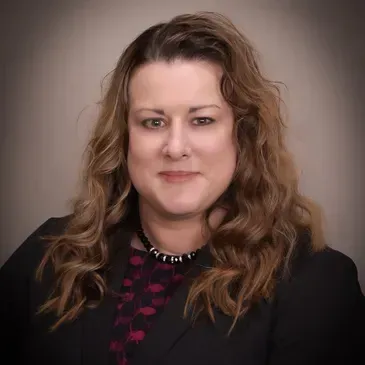Meet Our Team
Executive Team
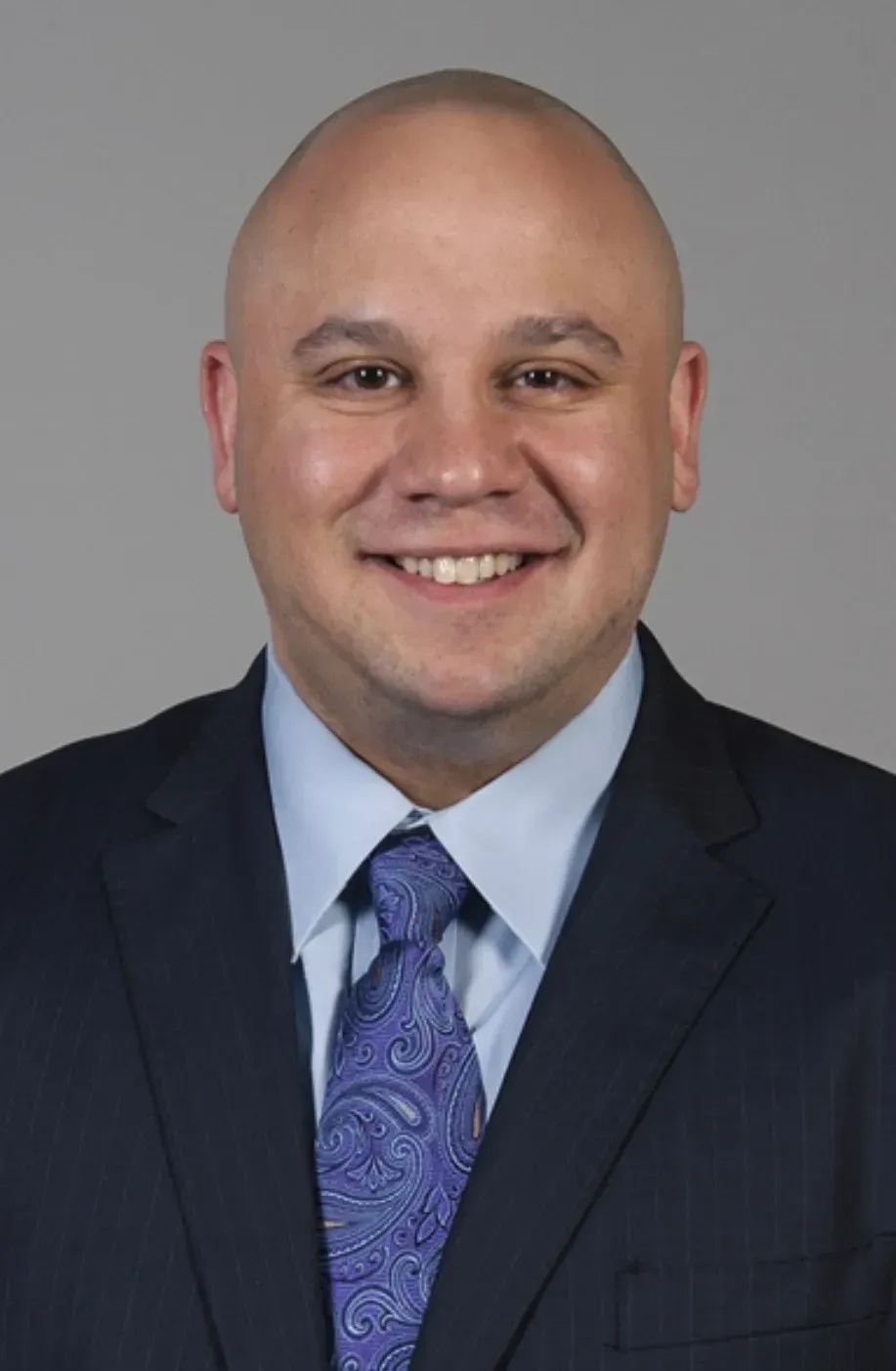
Rami A. Ahmed, DO, MHPE, FACEP
Chief Executive Officer (CEO)
View Bio
Dr. Ahmed is Professor of Emergency Medicine and former Simulation Division Chief, Medical Simulation Fellowship Director, and Director of Simulation in the Interprofessional Practice and Education Center at the Indiana University School of Medicine. Dr. Ahmed is a former US Army Medic and SWAT Team physician for the Akron, OH Police Department. He is currently serving as a staff physician at the Roudebush VA Emergency Department in Indianapolis, IN providing care to our country’s veterans.
He completed his undergraduate studies at John Carroll University in Cleveland, OH. He completed medical school at the Lake Erie College of Osteopathic Medicine (LECOM) in Erie, PA. Dr. Ahmed went on to complete his emergency medicine residency training in Akron, OH at Summa Health System where he served as chief resident. He then went on to complete a medical simulation fellowship at Massachusetts General Hospital/Harvard Medical School in Boston, MA under the tutelage of Jim Gordon, MD. Additionally, he completed a Masters in Health Professions Education (MHPE) at the University of Illinois at Chicago (UIC). Most recently, Dr. Ahmed completed a one-year graduate certificate in Implementation Science and Innovation at the Indiana University School of Medicine’s Clinical and Translational Sciences Institute under the instruction of Dr. Malaz Boustani.
Dr. Ahmed started the first medical simulation fellowships in the state of Ohio and the state of Indiana. He developed two nationally recognized simulation programs, graduated 20 simulation fellows, served as a consultant for NASA on simulation related projects, co-developed a novel transvenous pacemaker simulator, and has published over 120 peer-reviewed simulation-based research studies. His recent research has focused on the development of medical simulation fellowship curriculum, the development of distance simulation guidelines and the development of best practices in distance simulation. He currently serves as an adjunct Professor at the Massachusetts General Hospital Institute of Health Professionals (MGH IHP) in Boston, MA teaching and mentoring students pursuing both Masters and PhD’s in the study of Medical Simulation. One recent PhD project led to a landmark publication on the development of distance simulation guidelines in healthcare (2023).
Dr. Ahmed was the recipient of the Donald O’Hara teaching award at Harvard Medical School in 2009 serving as a Harvard Macy Scholar. He is a recipient of the Emergency Medicine residency faculty of the year award for the Akron City Emergency Medicine residency program in 2010 and 2012, the 2017 ACEP National Faculty Teaching Award, the SAEM Simulation Academy "Distinguished Educator" award in 2020 and most recently recognized as the SAEM 2023 National Simulation Research Award winner. Dr. Ahmed is passionate about training emergency medicine residents into highly effective team leaders.
Dr. Ahmed developed Agile Simulation because he has seen firsthand the transformative nature of cutting-edge simulation training turning otherwise “average” students into elite performers across multiple environments. Although medical simulation has found its way into mainstream academic training and academic institutions, many community hospitals, clinics, and small community first responder teams have never had exposure to this transformative training that leads to expert performance. His mission is to provide this training to those who seek to take their skills to the next level and who have a desire transform themselves into leaders for their departments or units. No red tape, no politics, just the best training, customized to your needs, delivered to you and your teams.
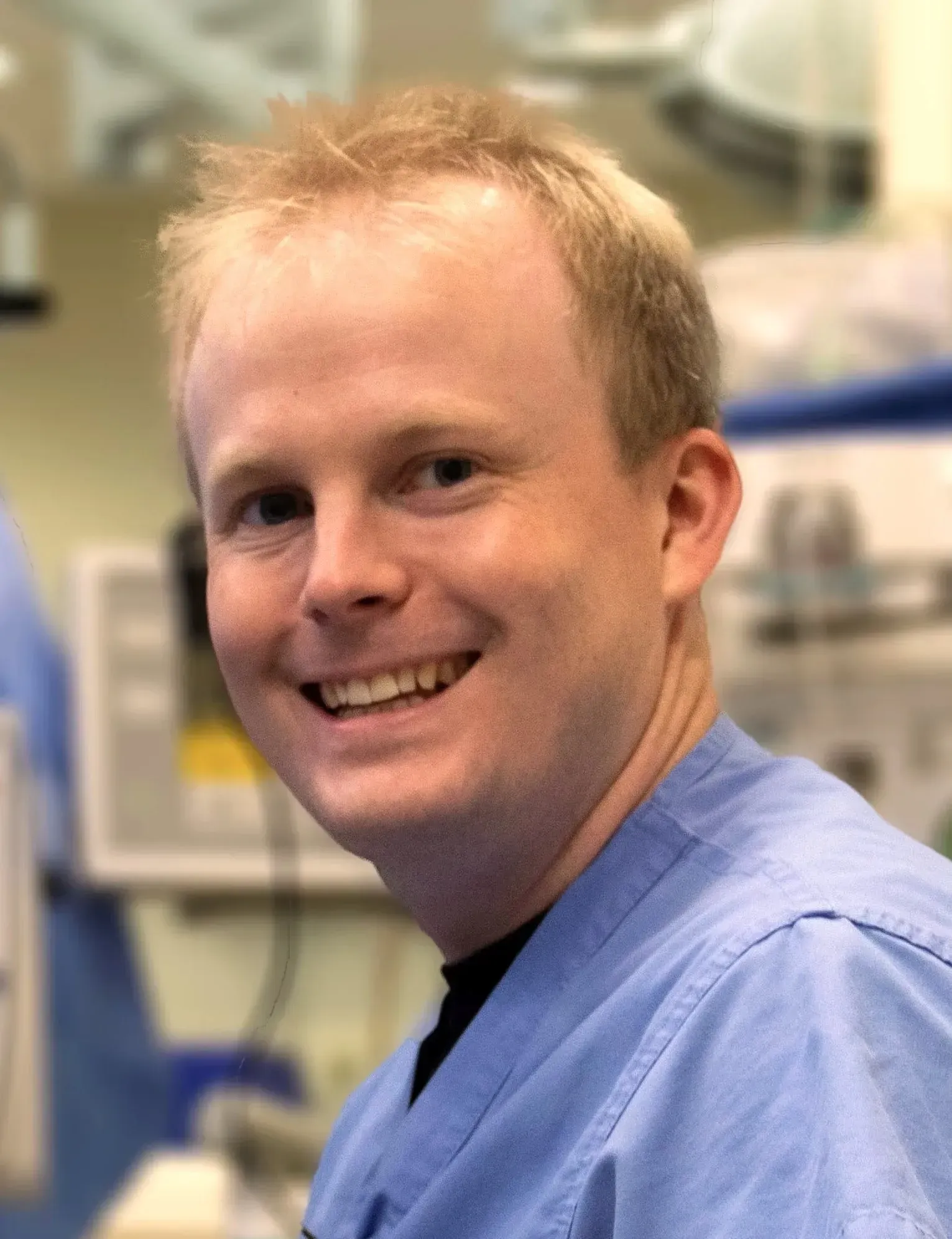
Johnny Cartwright, BBA, CHSOS-A
Chief Technical Officer (CTO)
View Bio
Being a sim professional was not his original plan. When he was in undergrad at Grand Valley State University, Johnny spent 4 years focusing on becoming an automotive engineer. In those four years, he completed several mathematics, physics, and engineering courses that helped mold the tinkering mind he has today. When the great recession hit the US, the automotive industry was drastically changed. That led Johnny to rethink his path in undergrad. He could see that his path through internships and capstone courses would be affected significantly and thus delaying his undergraduate education by two years or more. He made the decision to switch to the business school so that he could graduate on time and grab a job while they were still available. He had already taken classes to obtain a business minor, which allowed me to focus on classes for an operations management major. Even though he obtained a business degree, Johnny’s brain was still wired to have an engineering focus.
After graduation, he accepted a position as an instrument specialist and regional sale manager for a surgical device distributor. In this role, Johnny focused on determining the needs of surgical professionals and finding what devices helped them deliver the best care possible to their patients. This was the first step towards him becoming a larger part of the patient safety movement. After close to a decade in this field, he stumbled across the medical simulation field upon moving to Boston Massachusetts. Johnny grew tired of traveling and wanted to enjoy living in Boston while his wife was in her medical residency. He applied to a position at Harvard/Massachusetts General Hospital, thinking it was just part time. It turned out to be a full-time simulation tech position at the Center for Medical Simulation (CMS). At the end of that interview, Johnny was hooked. Medical simulation was the career he had always dreamed of. A simulation center is never truly complete and is always evolving and adapting to the ever-changing world of medical education. In the first three years of his career at the Center for Medical Simulation, he was fortunate enough to learn from some of the pioneers in medical simulation. After he had two years of experience as a simulation technician, he earned his CHSOS (Certified Healthcare Simulation Operations Specialist) certification. Working in academia has fostered his interest in advancing the medical simulation field. From day one, Johnny has been dedicated to taking the field of simulation to a new level. From the early years working at CMS to now, his focus has only intensified. It was thanks to the wonderful education staff at CMS that his spirit of innovation began to set roots. Supporting the staff at CMS helped Johnny understand the various foundational aspects of research and publication. Upon leaving CMS, he realized how much knowledge he had gained and was able to apply to advance the field. The next chapter of his simulation career took place at Wright-Patterson Air Force Base (WPAFB). At WPAFB, he began to realize how fortunate he was to have started his career at one of the most well-established sim centers in the world. At CMS, he always had seasoned education and operations staff around him. Johnny’s career in sim started in a very privileged and prestigious family. It is only a handful of individuals in the entire world that can say they were trained by some of the early pioneers in medical simulation. Thanks to his time at CMS and obtaining the CHSOS certification, he was able to hit the ground running at WPAFB. He was one of only a handful of CHSOS certified operators within the AFMMAST (Air Force Medical Modeling & Simulation Training) program. This allowed him to be a mentor and provide subject matter expertise to the AFMMAST operations team across the globe. This expertise would include, but is not limited to, specific operational and troubleshooting knowledge for a substantial portion of the high-fidelity patient simulators currently on the market, task trainers, and other key pieces of equipment used within the AFMMAST program.
After a highly successful two years at the WPAFB med group, Johnny was offered an opportunity to become the Associate Director of Simulation for the Department of Anesthesia at Indiana University School of Medicine. He accepted the position, and the next chapter of his simulation career began. Almost immediately, he got to work building and improving the simulation program for the anesthesia department. Within the first nine months, the COVID-19 pandemic had shifted gears for him and everyone in the simulation field. Some of that shift included projects directly related to supporting the needs of front-line healthcare providers. Some of the specific projects he has worked on to advance the field of medical simulation include an FDA approved ventilator splitter to allow for ventilation support for more than one patient at a time. This project was inspired by the need for increased ventilator support during the COVID-19 pandemic.
While at IUSM, he has also assisted Dr. Ahmed in the development of a one-year curriculum for simulation fellows at IU Health. He has completed various medical model projects including cricothyroidotomy and difficult airway models, as well as various medical models for in situ simulation including ECMO/ECPR, open heart procedures, neurosurgical procedures, orthopedic procedures, and general surgery procedures. These medical models have improved the high-fidelity medical simulation training at IU. Johnny currently manages over one million dollars in simulation equipment and supplies for the Department of Anesthesia. Utilizing his tinkering abilities, Johnny has been able to re-purpose and outfit a nearly ten thousand square foot decommissioned space within one of the IU Health Hospitals. One of his most valuable talents is his ability to re-purpose and take dispositioned hospital equipment and supplies and utilize them for simulation education.
Throughout his simulation career, Johnny has always been told he should have his own company. Helping develop Agile Simulation is the perfect opportunity to do just that. He believes that to make an organization like this successful, it takes a team and not just one individual. He chose to partner with Dr. Ahmed, Dr. Doos, and Dr. Shah because each of them has the same passion and drive to provide the highest quality simulation experience available.
As a team, Johnny knows that Agile Simulation can offer its clients the ability to refine and calibrate their skills to ultimately improve patient safety and patient care.
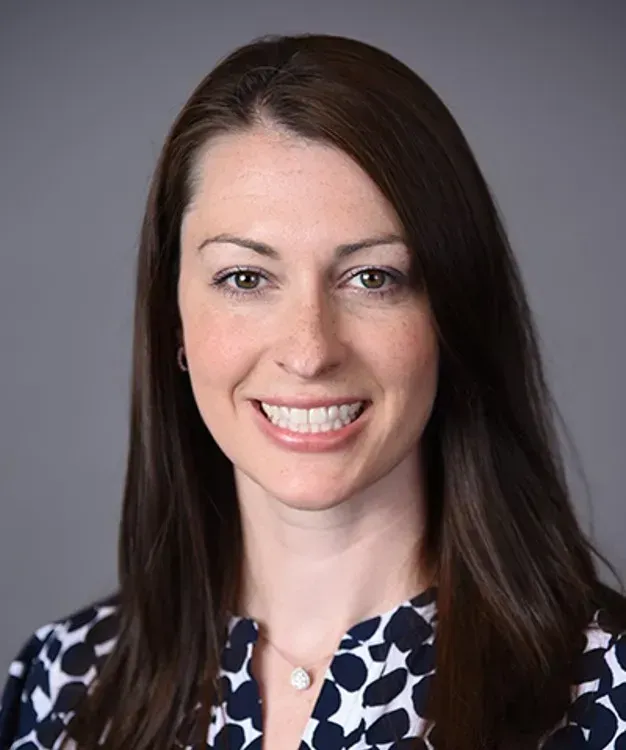
Devin Doos, MD
Chief Operating Officer (COO)
View Bio
Devin Doos is the COO for Agile Simulation. Dr. Doos currently works as an Emergency Physician in rural Indiana providing care for those in resource limited areas. She served as chief resident and completed an emergency medicine residency at Indiana University in 2020. In 2021 she completed a Simulation Fellowship with emphasis on disaster medicine. Her fellowship project consisted of a novel study regarding PPE reuse that resulted in several publications and international conference presentations. During residency she was awarded the EMRA Chief Resident of the year. During fellowship she was awarded the IU’s judges Choice Presentation of the year for her scholarly work in PPE reuse.
Dr. Doos originates from Northern Nevada where she completed her bachelors in Biochemistry with emphasis on molecular genetics then completed her medical degree in 2017 at the University of Reno, Nevada School of medicine. Her first career was spent as an EMT at a high-volume EMS system in Reno, Nevada where she spent time working clinically and training emergency medical technicians.
Through her collection of experiences Dr. Doos has developed a passion for training motivated individuals in Emergency and Disaster medicine. She believes high quality simulation focused on improving patient safety and teamwork should be the foundational focus for most health systems and clinical providers.
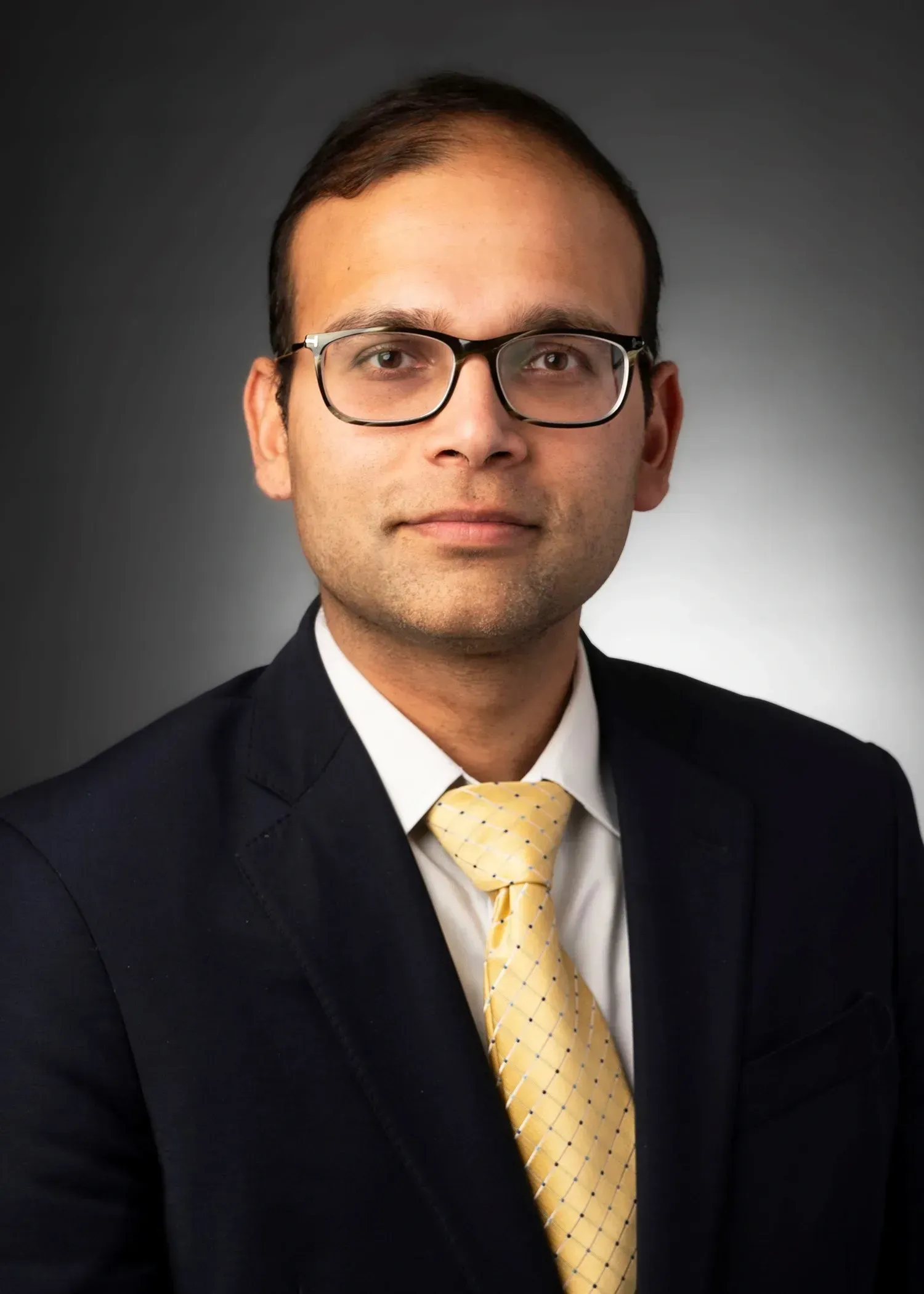
Karan Shah, MD
Chief Strategy Officer (CSO)
View Bio
Karan Samir Shah, MD, MMHC, FACEP in addition to serving as the Chief Strategy Officer for Agile Simulation, he also serves as the founding and managing partner for Physician Care Coordination Consultants (PC3). PC3 provides utilization
management physician advising services, case management, data analytics, clinical documentation integrity and denials management support to large and small hospitals across the nation. PC3 serves 45 hospitals in 6 states and in 2024 brought in an estimated 210 million dollars for the hospitals. The company has an estimated valuation of 100 million dollars. For his incredible work with the company and the community, Dr. Shah has received several awards over the last few years. He has received the Kentucky Colonel Commision, which is the highest title of honor bestowed by the Governor of Kentucky. For his involvement in the community, he has also received a Certificate of Special Congressional Recognition by Congressman Morgan McGarvey. Dr. Shah was also recognized as 40 under 40 by Louisville Business First in 2024 and a Healthcare Hero for his health entrepreneurship in 2025 by Louisville Business First. Dr. Shah serves on several boards. He is a board member for the Kentucky Board of Medical Licensure, which he was appointed to by the Governor of Kentucky. He also serves on the Louisville Board of Health, which he was appointed to by the Mayor of Louisville. In addition to these, he also serves on the boards of Park Duvalle, Physician Interstate Medical Licensure, Kentucky American College of Emergency Physicians, and Care Guide Partners and Quality, Risk, and Compliance Board for Hosparus Health.
Before founding PC3, Dr. Shah was employed at Baptist Health for three (3) years. He started with Baptist as the medical director of the Observation Unit. In that role, he was responsible for designing and opening a brand new 32 bed observation unit. One of the main responsibilities of this unit was to decrease length of stay for observation patients while maintaining high patient satisfaction scores.
Dr. Shah’s contributions were quickly recognized, and he was offered and accepted the role of lead system physician advisor for Baptist Health and vice president of Physician Integration. He was a member of the hospital’s executive leadership team providing leadership to case management, pharmacy, laboratory, and pathology. During his time as vice president, Dr. Shah helped to direct strategic projects at Baptist Louisville, collaborated with the Chief Medical Officer on physician issues, and worked with the quality department to improve overall care delivered to the patients. As a system leader, he worked closely with leaders of case management, denials management, revenue cycle, and managed care organizations to develop a successful internal utilization management program, which helped decrease denials for all nine (9) hospitals across the Baptist system.
Prior to that, Dr. Shah was director of strategy and operations in the Emergency Department at Indiana University Health. Under his leadership, IU health was able to secure several new emergency department contracts.
Dr. Shah graduated with a Bachelor of Science in biology and a Bachelor of Arts in religious studies from Bucknell University in Lewisburg, Pennsylvania. He earned a medical degree from Wake Forest University School of Medicine and completed an emergency medicine residency at Vanderbilt University Medical Center. His interest in healthcare administration led him to a Master of Management in Healthcare from Vanderbilt University Owen School of Management. He continued at Vanderbilt University, completing a hospital and clinics administrative fellowship at the medical center. Dr. Shah is currently a candidate for a Master of Science in Health Informatics from University of South Florida Morsani College of Medicine and will receive his degree in December 2026.
In his free time, Dr. Shah enjoys traveling, watching sports, and spending time with his family.
Our Consultants
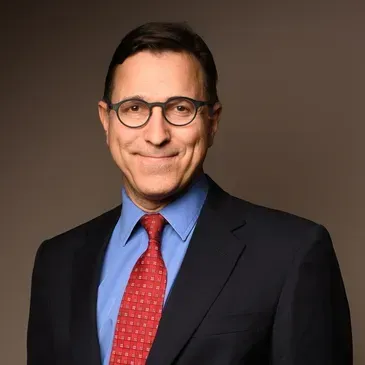
Professor Paul Barach, B.Med.Sci, MD, MPH, Maj (Ret.)
Anesthesia, Critical Care, Disaster Readiness and Team training lead
View Bio
Professor Paul Barach, B.Med.Sci, MD, MPH, Maj (Ret.) is an internationally recognized patient safety and high reliability expert with a deep focus on leadership and culture change. Dr Barach is an acute care and public health physician, university professor, trained medical educator, digital health expert, health service improvement, simulation expert and a health policy wonk with a passion for creating real world solutions which improve the quality, safety and efficiency of healthcare systems for patients, physicians and communities. He has assessed dozens of organizations and trained many thousands of healthcare leaders and managers in safety, human factors and reliability over three decades. Dr Barach is double boarded anesthesiologist and critical care physician-scientist, trained at Harvard Medical School, Massachusetts General Hospital, Boston's Children's Hospital Medical Center and the Brigham and Women's Hospital. Over his career, Dr. Barach has practiced pediatric, general and cardiac anesthesia, and critical care in community and urban settings as well as disaster and emergency care in the military; he held executive positions in several healthcare systems, including serving as Chief Medical Officer, Chief Quality Officer, Associate Dean for Patient Safety, and Senior Vice president for Safety and Quality. He is the Lead for the Association of Schools of Public Health in European Region (ASPHER) and Chair, Accreditation Board, Agency for Public Health Education (APHEA).
Dr. Barach has a 25-year history of helping healthcare systems, hospitals, international healthcare teams rethink problems and solutions. In this role, Barach has advised and supported healthcare systems across the U.S and internationally on improving healthcare safety and reliability. Dr. Barach has studied and identified the essential components of great organizational and clinical leaders and selected and simplified the exceptionally important elements of teamwork. He has also had great success in putting into place the practical tools necessary to engender dignity and respect in pursuit of continuous improvement. In institutions small and large, Dr. Barach has built a new generation of learning environments capable of coping with complexity and unending demands, while achieving positive cultural and clinical change. Special areas of focus include health and social care, risk management strategies and tactics, digital health technologies, workflow automation, electronic medical record optimization, product design, physician leadership, reporting systems, change management, and organizational change. Barach’s career includes serial innovations and contributions to the high reliability and patient safety fields; co-development or validation of TeamSTEPPS the most widely used team training program, the HANDOVER readmission management training program, and led one of the first trained simulation instructions and found the major simulation center at the University of Miami in 2003. He was a Senior Faculty member at IHI and Intermountain Health’s Advanced Training Program (ATP). He designed and has led efforts to transform national health systems, large health plans and integrated care delivery systems in North America, UK, Europe, Norway, Pakistan, Chile, Jordan, Hong Kong and Australia.
Previously, he was in an advisory role to the US government on health services design and primary care, Harvard Medical Education Macy Fellow, National Board of Medical Examiners Fellow, and Chair of the Patient Safety Commission for the World Society of Anesthesia. Paul has worked as an expert advisor to the WHO on disasters and emergencies, patient safety, patient participation and hospital to private care transitions. He has served as expert advisor to PWC, KPMG, EY, SMS, KSA and Booz and IEEE on health and digital reform including universal healthcare coverage. He has advised the USA National Academy of Science, Global Alliance for Improved Nutrition, World Bank and the Bill and Melinda Gates Fund. He has advised international accreditors, The Joint Commission, DNV and continues to advise the Canadian Health Standards Organization. He has been a recipient of federal grants of over $100,000,000 including from the US (NIH, AHRQ, CDC, HRSA, AHA, DoD, VA HSRD), EU (FP-7, Horizon, Erasmus), Australia (NHMRC), UK (NIHR), Norway (NRC) and Netherlands (ZonWv). Dr. Barach has received numerous awards for his contributions including an elected member of the lead international Anesthesia honorary society. He has 7 PhD students and has trained and overseen 45 graduate and PhD students.
Dr. Barach is the author or co-author of over 250 scientific articles and five books. Paul holds numerous international academic part time positions including at Imperial College London, University of Birmingham, UK; Sigmund Freud University, Austria; University of Queensland, Australia; National Cancer Center, South Korea; and in Pakistan and Tanzania.
Paul teaches courses on patient safety, digital health, health system design and quality improvement with a practical focus on what is happening at the front lines of care, and how digital tools can improve access to quality-assured digital solutions for a healthier, safer, fairer future. He advises several digital startups. He was editor of the BMJ Quality and Safety journal and is now senior editor for lead digital health journal, Telehealth and Telemedicine. Paul is married to Julie, Professor of Surgery, father of 3 boys. He is a veteran of the Gulf War.
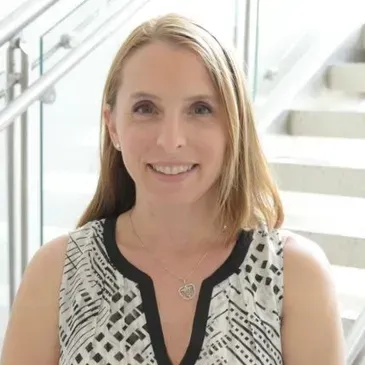
Dr. Jill Sanko, PhD, MS, APRN-BC, CHSE-A, FSSH
Nursing Lead
View Bio
Dr. Jill Sanko, PhD, MS, APRN-BC, CHSE-A, FSSH, is an award-winning internationally recognized nurse scientist with over two decades experience in research and healthcare education. She is a prolific writer with over 60 peer-reviewed articles, book chapters, and OpEds. Her varied experience in a multitude of research and educational spaces sets her apart, making her a unique asset to any project or team. She understands, the importance of sound research approaches and well-constructed educational opportunities replete with strong, well-aligned curricula and measurement tools to demonstrate bench-marked outcomes.
She began both her research and education career as a member of the team at the National Institutes of Health (NIH) where she engaged in bench to bedside research as a research nurse specialist and associate investigator. While at the NIH, she assisted in establishing the NIH Clinical Center (NIH-CC) Patient Safety and Simulation Program in partnership with the NIH-CC Critical Care Medicine Department as a founding director. As a Research Nurse Specialist she work with the Critical Care Medicine Department, The National Institute of Health Lung and Blood, and the National Institute of Biomedical Imaging and Bioengineering caring for research participants and working as a member of several research teams doing state-of-the-art cardiac, cardiac imagining, sickle-cell anemia, and critical care medicine research.
In 2008 she moved back to her hometown of Miami Florida where she became a member of the team at the University of Miami – Jackson Memorial Hospital Center for Patient Safety as a Research and Simulation Education Specialist. As a member of this team, she produced new curricula for nurses, physicians, and healthcare students centered on teaching critical technical and non-technical skills aimed at improving teamwork, communication, interprofessional collaboration, and patient safety. In addition to her work building curricula and teaching she was an integral member of the research team that worked to demonstrate the effectiveness of simulation-based educational as an effective educational tool. Over the course of her years as a member of this team she helped to secure tens of thousands of dollars of grant funding, produced award winning research, and helped to disseminate work in the form of peer-reviewed articles and national and international presentations.
In 2015 she returned to her nursing roots, accepting a faculty position at the University of Miami School of Nursing and Health Studies (UM-SONHS). As a member of faculty, she worked across undergraduate and graduate programs to develop research and educational programs to enhance nursing, interprofessional, and patient safety education. Her efforts helped to secure grant dollars, award winning research, measurement tools on medication administration, team cohesion, end-of – life care, and assessment of simulated participants (confederates), and innovative methods for healthcare education including a simulated-adverse event reporting system embedded in their simulation and clinical educational programs.
She is also the co-creator of a peer-reviewed, award-winning table-top simulation game called Dwell that teaches about the impacts of poverty on health and healthcare decision making. A creator of The Picnic Game which teaches about food and drug interactions, The Biohazard Game, The Look-Alike-Sound Alike Drug Game, and The Puzzle Game. While at the University of Miami School of Nursing and Health Studies she also worked as the co-director of the University of Miami Interprofessional Patient Safety Course which over the course of a decade educated hundreds of nursing, medicine, and physical therapy students using simulation-based education coupled with art and visual thinking strategies to develop future healthcare providers’ non-judgmental communication, collaboration, teamwork, and safety monitoring skills.
After the COVID-19 pandemic Dr. Sanko felt a calling for a new career adventure. Since 2021 she has enjoyed working as an adjunct associate professor at several well-recognized universities. As a member of these dynamic teams, she has been involved in teaching and mentoring graduate students. Currently she is enjoying time teaching graduate level nursing in theory, teaching, and research as well as graduate degree seeking healthcare students in simulation research and general research methods courses. As part of her current work she also chairs numerous Doctor of Nursing Practice (DNP) committees and several PhD committees and serves on several DNP and PhD committees as a methodologist/ simulation expert.
In addition to her scholarship, Dr. Sanko is deeply committed to giving back to her communities, she has served on the University of Miami Interprofessional Education Taskforce as chair, the co-chair of the SONHS patient safety committee, as a member of the SONHS PhD curriculum committee, and as a member of the SONHS technology and undergraduate curriculum committees. While the Academic and Research Director of the SONHS Simulation Hospital she over saw their provisional initial simulation accreditation.
Dr. Sanko was the co-chair of the International Meeting for Simulation in Healthcare in 2018, has served as chair of the Meetings Oversite Commission of the Society for Simulation in Healthcare (SSH) for the last 3 years, is the current chair of the SSH Fellows Academy and Board of Governance, the co-chair for the SSH Distance Simulation Affinity Group, the founding chair of the SSH Super-Sized Simulation Affinity Group, and has served on the SSH Research Committee, reviewed abstracts and educational proposals for IMSH for over a decade, reviewed grant proposals for SSH and helped to bring the Virtual Scholars Program to fruition as the inaugural co-chair and later chair of this program. She also sits on the Journal for Simulation in Healthcare editorial board.
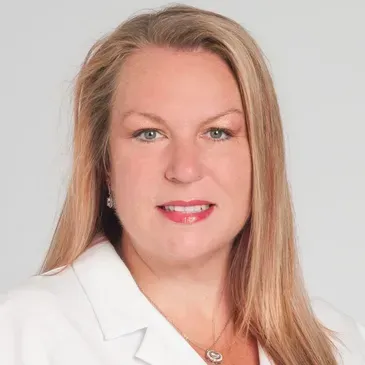
Rachel Velazquez, MSN, APRN, AGACNP-BC, CCRN
Nurse Practitioner (NP) Lead
View Bio
Rachel Velazquez, MSN, APRN, AGACNP-BC, CCRN is a board-certified Adult Gerontology Acute Care Nurse Practitioner, currently working as a Regional Critical Care House Officer for the Cleveland Clinic. Every day her skills are challenged in the medical intensive care unit while collaborating with the team to develop a plan of care for critically ill patients. Additionally, she performs invasive procedures, including intubation with ventilator management and central and arterial line insertion. Other responsibilities include responding to calls for rapid response, stroke and sepsis teams, and other emergencies. The scope of her practice is to stabilize medical patients in a 450-bed level 2 trauma, stroke and heart center until they can be transferred to ICU.
She attended Ursuline College, in Pepper Pike, and graduated, Summa Cum Laude, Master of Science in Nursing.
Rachel began her nursing career on a telemetry critical care step down floor, where she worked 4 years as a LPN while completing her Bachelor of Science in Nursing (RN). The yearn to advance her nursing career took a turn when obtained her RN and began working at a level one trauma center in the emergency room and intensive care units. Her experience was further enhanced when she became charge nurse of the 75-bed trauma emergency room.
Rachel is also a credentialed and experienced Flight Nurse and was an active member of the Education Committee for airborne First Responders.
Currently, Rachel is a 12-year veteran, active appointee with the Federal Disaster Medical Assistance Team, ready to deploy, in response to natural disasters and emergency events, as declared and dispatched by US Health & Human Services. She also serves as a Member on Boards for Trauma, EMS Scope of Practice, and EMS Human Resources, all on behalf of the Ohio Department of Public Safety.
As a Firefighter & Paramedic, Rachel served the communities of Copley, Bath, and Granger townships before retiring, in 2023, after 28 years with the Department. During her career, she served as the Community Relations & Fire Prevention Liaison for Highland Schools, was a representative with the Medina County Sheriff’s DARE program and was a member of the Summit Medina Area Response Team, which focuses on critical incident stress debriefing. Rachel also wrote and submitted numerous grant proposals, resulting in Federal Firefighter Assistance Grant awards, valued, in excess of, $1,000,000.
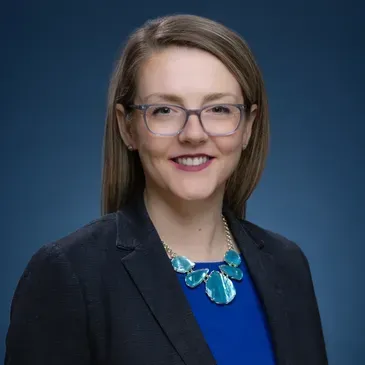
Ashley Hughes, PhD
Human Factors Lead
View Bio
Dr. Hughes is an Associate Professor in the Department of Medicine at Case Western Reserve University College of Medicine and the Center of Clinical Informatics Research and Education at the MetroHealth System in Cleveland, OH. She also serves as a Research Health Scientist at the Center of Innovations for Complex, Chronic Healthcare (CINCCH) at the Edward Hines JR VA Hospital and holds affiliate positions in the Department of Biomedical and Health Information Sciences and Department of Medical Education at the University of Illinois Chicago.
Her research in human factors in healthcare seeks to improve sociotechnical systems and the teams working within them, with the end goal of improving patient safety and clinician well-being. As a team science investigator, she has been a part of $9 million (total) in grant funded projects awarded to date and the recipient of 3 NIH-funded faculty fellowships. With nearly 50 peer reviewed journal articles, several other peer reviewed publications and book chapters, more than 100 presentations at national and international conferences, her research advances the application of human factors within health informatics and patient safety. Her research has been recognized for rigor and advancement to the field by the Society for Industrial and Organizational Psychology (Schmidt and Hunter Meta-Analysis Award for Methodological Rigor and Impact to the Field, 2018) as well as the Human Factors and Ergonomics Society (Bentzi-Karsh Early Career Award, 2019; Bob Wears Early Career Award- Academic, 2022).
Dr. Hughes has a deep-seated commitment to advancing diversity, equity, and inclusion in science, technology, engineering, and medicine (STEM) fields, including an emphasis on health equity. Within her professional organization, the Human Factors and Ergonomics Society, she co-founded and chaired (2016-2019) the Human Factors and Ergonomics Women’s Organization for Mentoring and Networking (HFE WOMAN) as the first Affinity Group. She then went on to serve as the inaugural chair for the Council of Affinity Groups (COAG, 2019-2022). Locally, Ashley served on the Steering Committee for Interprofessional Education (IPE) (now referred to as Center for Interprofessional Practice, Education, and Research [CAIPPER]) and guided the development of a research program around UI Health’s new Complex Care Clinic.
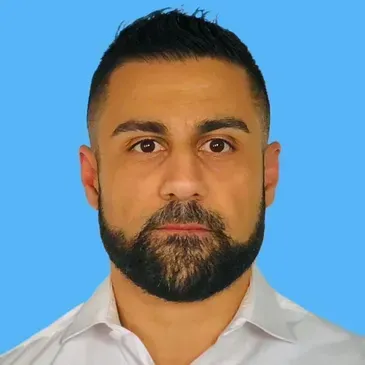
Kamal Abulebda, MD
Pediatrics Lead
View Bio
I am an Associate Professor of Pediatrics and a passionate Pediatric Intensivist currently serving in the role of Director of Pediatric Simulation at Riley Hospital for Children in Indianapolis, IN. My passion lies in utilizing simulation to enhance the quality and safety of pediatric care, with a particular focus on healthcare providers, teams, and complex health systems.
Through the implementation of several improvement programs, my ultimate goal is to guarantee that all acutely ill and injured children receive the highest standard of care in any healthcare setting. These programs encompass a diverse range of interventions, including educational initiatives such as simulation, online learning collaboratives, and the development of educational resources.
To support my research and initiatives, I have achieved success in securing funding from federal and foundation grants. My expertise is also evident in my extensive publication record, with over 50 manuscripts highlighting the outcomes and impact of my work.
One significant accomplishment that stands out is my leadership role in establishing the Pediatric Community Outreach Mobile Education (PCOME) Program. This innovative collaboration between a pediatric tertiary center and community emergency departments aimed to assess, measure, and improve acute care for ill and injured children throughout Indiana. The success of this program paved the way for subsequent opportunities as the principal investigator on simulation-based research projects, which strive to ensure emergency departments are adequately prepared to care for acutely ill and injured children.
Furthermore, I am proud to serve as co-chair of the Improving Pediatric Acute Care Through Simulation (ImPACTS) network. This national network brings together academic children's hospitals and community hospitals, working collaboratively to enhance the process and quality of care provided to acutely ill and injured children in the community setting. Through our collective efforts, we have successfully improved pediatric emergency readiness and subsequently enhanced clinical outcomes.
I have held honorable regional and national leadership positions within organizations such as the INSPIRE network Executive Board and scientific Research Committee, Society of Pediatric Sedation Simulation Provider Course, Riley Children’s hospital Simulation Program, and the Indiana-EMSC committee.
Overall, my expertise lies in harnessing the power of simulation, education, and technology innovation to drive transformative improvements in pediatric acute care. I remain committed to advancing research and initiatives that ensure all children receive optimal care, regardless of their location.
View Bio
Michele L. McCarroll, Ph.D., FAACVPR, ACSM-CCEP, CCRP, LSSGB President and CEO of Strength-Based Solutions, LLC, provides consultation and leadership to non-profits across the country to enhance their programmatic outreach efforts ( https://strengthbasedllc.com/grant-writing). Specifically, she is passionate about integrating, engaging, and understanding the disparities impeding prevention and treatment initiatives in low-income, minority, and medically underserved communities. She also teaches in the Leadership & Health Systems Science Master’s program in the College of Graduate Studies at Northeast Ohio Medical University which has allowed her to become Black Belt Certified in Lean Six Sigma.
Prior to her current roles, she was the Chief Research Officer (CRO) at Pacific Northwest University of Health Sciences and Professor of Clinical Medicine in the College of Osteopathic Medicine. In this role, she had the privilege of serving medical faculty, staff, and students by elevating clinical research knowledge and application, especially in Interprofessional Practice and Education. She co-created the master preceptor program ($1.95 million grant from Health Resources and Services Administration Primary Care Training and Enhancement: Training Primary Care Champions) which is designed to coach physicians on how to be better medical educators to medical students in the clinic by using strength-based servant leadership teaching styles.
Her clinical career started at the Cleveland Clinic Health System in Cleveland, OH in cardiopulmonary rehabilitation whereby setting the stage in helping patients with cardiovascular risk factor management and physiological conditioning. Eventually, her career focused on endometrial cancer survivors dying from cardiovascular risk factors versus their cancer diagnoses. Recently, her research has focused on implementing health programs via web-based and app-based interventions.
She earned her Ph.D. from The Ohio State University and has worked for several major healthcare systems and academic medicine institutions across the country including the Cleveland Clinic Health System, State University of New York at Buffalo, Summa Health, Northeast Ohio Medical University, and Pacific Northwest University of Health Sciences. She is a Fellow of the American Association of Cardiovascular and Pulmonary Rehabilitation (AACVPR), a certified clinical exercise physiologist from the American College of Sports Medicine (ACSM), and a certified clinical research professional from the Society of Clinical Research Associates (SOCRA).
Overall, she comes with 25 years of clinical experience in cardiovascular risk factor management and over 20 years of clinical research experience. She thrives on putting her strengths and the strengths of others together in supporting a positive, peaceful legacy for our communities, country, and the world.
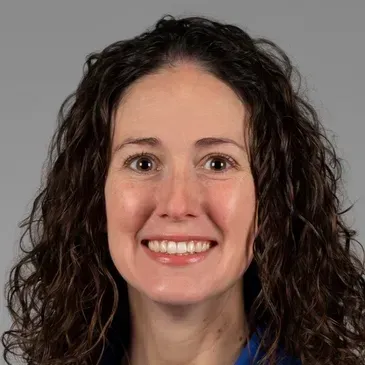
Alma Benner, RRT, CHSE
Respiratory Therapy Lead & Project Manager
View Bio
Alma Benner, RRT, CHSE, is currently the Simulation Manager of the Virtual Care Simulation Lab in Akron, OH. She completed her Respiratory Care Degree in 2007 and a Bachelor’s degree in Business with an Operations Management Certification in 2023. Alma worked clinically in intensive care and emergency medicine before transferring to the Simulation Lab. Since entering her simulation career, she has had multiple publications in Simulation-Based Curriculums, Ventilator Training, and a Simulation-based instructor trainer course. She has presentations and teaching engagements at the state and international levels regarding mechanical ventilation, neonatal and maternal skills for emergency medicine, and mass casualty incidents.
She is a member of the Society for Simulation in Healthcare and the American Association of Respiratory Care (AARC). She is an Instructor at the Northeast Ohio Medical University Department of Surgery. Her areas of interest include curriculum design, moulage, and creating interactive simulation experiences. In addition, she enjoys running, hiking, camping, gardening, and attending her children’s sporting activities in her spare time. She is currently continuing her lifelong learning mindset and is working to complete her certification in yoga, personal training, and sports nutrition coaching.
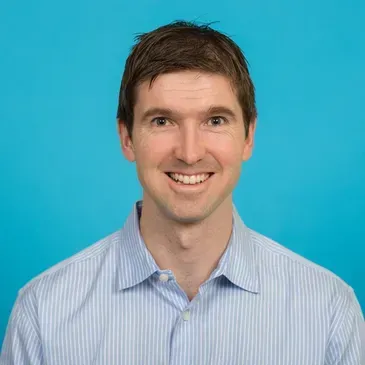
Andrew Petrosniak, MD, MSc (MedEd), FRCPC
Immersive Design & Translational Simulation Lead
View Bio
Dr. Petrosoniak is an emergency physician and trauma team leader at St. Michael's Hospital. He's the inaugural lead for translational simulation at Unity Health Toronto. He’s an assistant professor at the University of Toronto where his research work focuses on 1) using in situ simulation to improve systems and design and 2) optimizing the care of bleeding patients. He is an invited speaker at >100 national and international conferences on topics of resuscitation and simulation. He's also the president of Advanced Performance Healthcare Design, a design and consulting firm that trains high performance teams and uses simulation to optimize healthcare delivery. His Canadian based-firm: http://advancedperformance.ca/
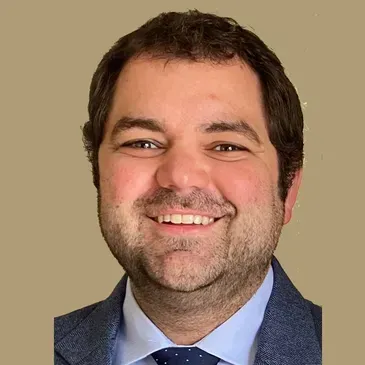
Patrick Hughes, DO, MEHP, FACEP
Emergency Medicine Lead
View Bio
Patrick Hughes, DO, MEHP, FACEP, is an Associate Professor of Emergency Medicine at the University of Utah Spencer Fox Eccles School of Medicine. He serves as the Medical Education Fellowship Director, Simulation Director, and Director of Medical Education and Residency Research in the Department of Emergency Medicine. Prior to relocating to Utah, he served as the Associate Program Director and Simulation Director for the Florida Atlantic University Emergency Medicine Residency Program.
Dr. Hughes earned his undergraduate degree from the Lyman Briggs School at Michigan State University and his medical degree from the Michigan State University College of Osteopathic Medicine. He later completed a Master of Education in the Health Professions at Johns Hopkins University.
He completed his residency in Emergency Medicine at Michigan State University and went on to complete a fellowship in Medical Simulation at Summa Akron City Hospital in Akron, Ohio.
Dr. Hughes has authored over 70 peer-reviewed publications and served as a co-investigator or consultant on more than $7 million in grant funding. His simulation work has been featured by CNN and The New York Times.
He has received national recognition for his contributions as an educator and researcher, including the Utah College of Emergency Physicians Educator of the Year, American Osteopathic Association Unsung Hero Award, the Simulation Academy Research Award from the Society for Academic Emergency Medicine, and the Emerging Leader Award from the Society for Simulation in Healthcare’s Emergency Medicine Section.
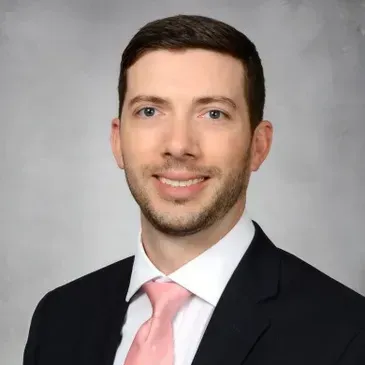
Yancy Doos, PA
Physician Assistant (PA) Lead
View Bio
Yancy Doos is the lead consultant for Physicians Assistant (PA) affairs. This includes management and oversight for PA related material such as simulated modules, procedures and CME related content. Yancy graduated with highest distinction from IUPUI with a B.S. in Psychology in 2021 and achieved his Masters in Physician Assistant Studies from IU in 2023. He continues close ties with the program, assisting with procedural training for the current PA classes. His diverse work background includes being a heavy equipment mechanic, wildland firefighter and EMT which has reinforced the values of precise communication and teamwork while under high pressure situations. His awards include an ABCD award, for going above and beyond the call of duty and an accommodation award for compassionate and courageous care provided during a hazardous patient encounter, while working as an EMT. Yancy’s professionalism, experience and passion for teaching make him a valuable Agile team member.
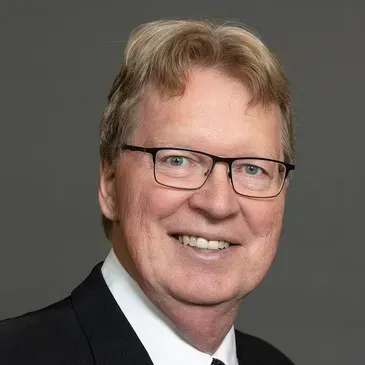
David L. Rodgers, EdD, NRP, FAHA, FSSH.
Operations Lead
View Bio
Dr. Rodgers is an Assistant Professor of Medicine at Indiana University and Director of the Interprofessional Simulation Center at the Bloomington Regional Academic Health Center. His experience includes simulation program leadership positions supporting health systems, medical schools, nursing schools and allied health programs. He successfully lead SSH accreditation efforts at three simulation programs and also achieved ACS accreditation and ASA endorsement. A versatile leader in simulation-based learning program development, simulation faculty development, quality management, systems integration, and all aspects of administrative operations including budgeting, finance, policy development, and strategic planning, he can assist programs both new and established with improving operations.
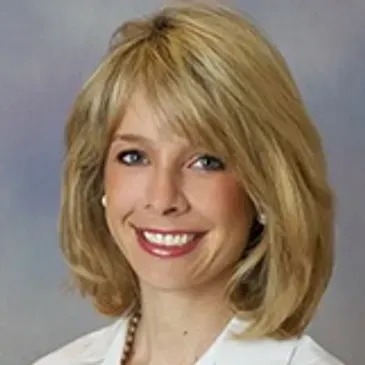
Nicole Lee, MD, EdM, FACS
Surgery Lead
View Bio
Nicole Lee, MD EdM FACS is a board-certified Minimally Invasive, Bariatric, and General Surgeon in Boston, MA. She received her undergraduate degree from the University of Virginia, her medical degree from the Medical College of Virginia, and her Masters in Education from Harvard University. Dr. Lee completed her General Surgery Residency at the University of Florida, Shands Hospital. She is dually fellowship trained in Minimally Invasive Surgery and Bariatrics from the Massachusetts General Hospital as well as Medical Simulation from the Brigham and Women’s Hospital STRATUS Center for Simulation. Dr. Lee has led, directed, and/or founded several comprehensive ACS/AEI simulation programs at large academic institutions including the University of Tennessee in Knoxville and Indiana University in Indianapolis. She has also led and/or founded fellowship programs in simulation at both the University of Tennessee and Indiana University. She has also served as associate program director for skills in surgery.Dr. Lee is currently an active ACS/AEI simulation center site surveyor and member of the Accreditation Review Committee for the American College of Surgeons Accredited Educational Institutes. She has tremendous expertise in simulation center and fellowship program development. Dr. Lee has also been involved in many outstanding multidisciplinary simulation based research projects and related publications/presentations on the national and international podiums. Dr. Lee is experienced, creative, dedicated, up-to-date, and passionate about superb simulation-based education.
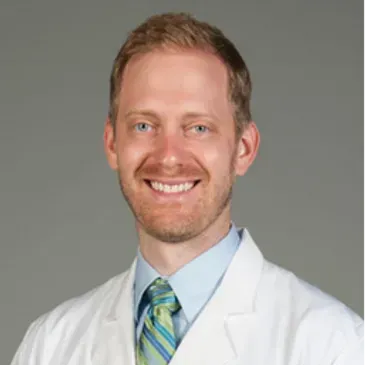
Derek Ballas, DO, MHP-Ed, FACOG
Obstetrics & Gynecology Lead
View Bio
Dr. Ballas currently serves as the Medical Director for the Women’s Collaborative Care Clinic Anne Arundel Medical Center, and the Director of Medical Simulation for the Women’s and Children’s Service Line at Anne Arundel Medical Center. He is the Associate Program Director for the OBGYN Residency Program at Luminis Health AAMC in Annapolis, Maryland, and an Assistant Professor of Obstetrics and Gynecology George Washington University School of Medicine and Health Sciences. He graduated from the West Virginia School of Osteopathic Medicine as a Doctor of Osteopathic Medicine. From there he completed residency training in Obstetrics and Gynecology at Summa Health in Akron, Ohio, and then a fellowship in Medical Simulation at Summa Health. He went on to complete a Masters in Medical and Health Professions Education from Eastern Virginia Medical School. His areas of interest include innovation in healthcare education and simulation for interprofessional teams.
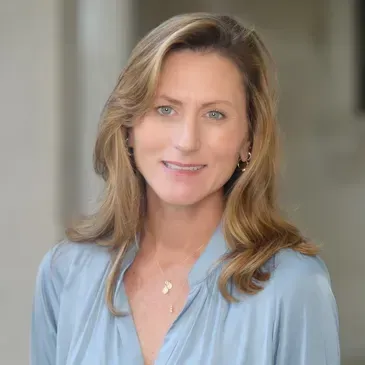
Kimberly Khoury, MD, MA
Internal Medicine Lead
View Bio
I grew up in sunny La Jolla, CA and went east for college to the University of Pennsylvania where I completed a Bachelor of Arts in English and played Varsity Tennis for 4 years. I captained the team my senior year and was awarded the Julius Axelrod Most Inspirational Player award, something I am still extremely proud of! The next part of my life took me to New York City, where I did a Master of Arts in English Education at Columbia and then taught public high school English in both the South Bronx and at Stuyvesant High School in Manhattan. I taught the widest range of students—from 17 year olds who spoke only Spanish and struggled to read to students who were reading and writing way above an advanced collegiate level at age 15. I loved all of it, and realized then that no matter what I ended up doing with my life, I would always find a way to teach. In addition to my love for literature, reading and writing, I had always wanted to be a physician—and at age 28 began a post-bacc program to complete the science requirements for medical school. At age 31, I began my studies at Albany Medical College and had my daughter (now 22) between first and second year and then my son (now 19) a few weeks before graduation. They are the lights of my life and by far my biggest accomplishments.
I knew I would always be a teacher as well as a practicing physician, and so when choosing residency I focused on places where the medicine was intense, where I could speak Spanish frequently, and where teaching opportunities would be plentiful and diverse. I completed an Internal Medicine residency at Cambridge Health Alliance, and began teaching at Harvard Medical School during my third year of residency when I came across an opportunity to do an elective in the Simulation lab. I immediately recognized that this was the perfect marriage of medicine and teaching for me—the freedom to design and plan cases and curricula tailored to specific students’ and residents’ needs and levels in training and education. Simulation provided a safe environment where students had the opportunity to work together, to take risks, make decisions, make mistakes and try and try again. I then spent two years completing a Fellowship in Simulation and Medical Education at Massachusetts General Hospital with Dr. Rami Ahmed as my co-fellow and under the guidance of Dr. Jim Gordon while working as a part time nocturnist and adult urgent care physician at a Harvard affiliated hospital. At the same time, I was raising my kids, going to PTO meetings and field trips, driving my now college tennis playing kids to tournaments and practice and running bake sales. In 2019 I began working as a primary care physician at Mass General Brigham, which offered me a very intense teaching opportunity in the setting of a diverse outpatient experience. I mentored 1st through 3rd year students in our busy urban primary care practice for 4 years, often 5 days a a week and was promoted to Assistant Professor at Harvard Medical School in 2022. In 2023, with both kids and most of my family in California, I decided to take a job at Scripps Clinic in La Jolla, where I am currently working. IN addition to a full schedule of patients, I train internal Medicine residents, Nurse practitioner students and am working to develop a robust simulation curriculum with the critical care department. Before and after work you can find me running with my puppy, playing tennis and sitting on the beach with my kids and family or working in the garden.
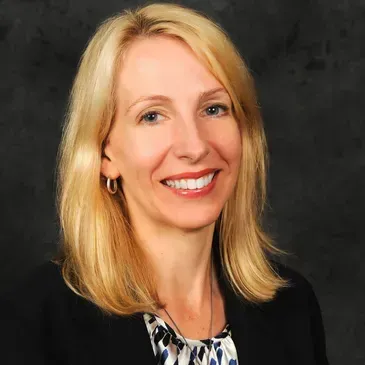
Holly Gerzina, PhD, MEd, CHSE
Standardized Patient (SP) Lead
View Bio
Dr. Gerzina has served as the Sr. Executive Director, Wasson Center for Clinical Skills Training, Assessment, and Scholarship and Interprofessional Education Services (IPES) at Northeast Ohio Medical University (NEOMED). Dr. Gerzina earned an MEd in Evaluation and Measurement and a PhD in Health Education and Promotion with a focus on mental health promotion and resilience in health and human service professionals from Kent State University. Dr. Gerzina began her career at NEOMED as a Standardized Patient (SP) Educator and as a site trainer for the United States Medical Licensing Examination’s (USMLE) National Board of Medical Examiner’s (NBME) Step 2 Clinical Skills SP licensure exam in the early 1990’s. She advanced her simulation training in Boston at the Center for Medical Simulation MIT Harvard in 2004 and earned her Association of American Medical Colleges (AAMC) Medical Education Research Certificate (MERC) at the University of Miami in 2007. She earned her Agency for Healthcare Research and Quality’s (AHRQ) TeamSTEPPS Master Trainer Certificate in 2014 in Independence, OH and has been a Certified Healthcare Simulation Educator (CHSE) since 2018. Most recently, Dr. Gerzina completed her Lean Six Sigma Green Belt Certificate applied to simulation center operations.
At NEOMED, Dr. Gerzina serves as an Associate Professor of Family & Community Medicine and Associate Professor of Psychiatry. She has over 25 years of experience with medical and health professions curriculum including application of standardized/simulated patient/participant (SP) methodology as well as formative, summative, and high-stakes performance-based assessment. In addition to her extensive experience building and operating education and training centers for UGME, GME, and Interprofessional Education, she formerly served as the Executive Director, Office of Continuing Professional Education for the health professions. She has collaborated on numerous grants to design curriculum via SP Methodology to educate health professions students and train healthcare teams for collaborative care and leadership, especially as related to the integration of primary care, mental health, and geriatric health with a focus on psychological safety in work environments to enhance high performance healthcare teams.
Globally, she has served on the executive board of the Association of SP Educators (ASPE) and most recently served as the Vice President, Operations of ASPE in the early 2020s during a global public health emergency that required the association and health professions education to rapidly respond to significant changes in delivery and protocols to ensure continuity and safety in health professions training and education. Having served as the Chair, Standards of Practice, ASPE, Dr. Gerzina represented ASPE at monthly collaborative workshops with the International Nursing Association of Clinical Simulation and Learning (INACSL) and the Society for Simulation in Healthcare (SSH) on Standards, Core Competencies and Best Practices in Healthcare Simulation. Dr. Gerzina has authored multiple journal publications in her areas of expertise as well as chapters related to the psychologically safe work environment, application of ASPE Standards of Best Practice (SOBP), and integrating simulation programs to improve the care of older adults. She has also collaborated with an interprofessional case development group for the Global Network for Simulation in Healthcare (GNSH) to create curriculum to improve patient safety in health systems
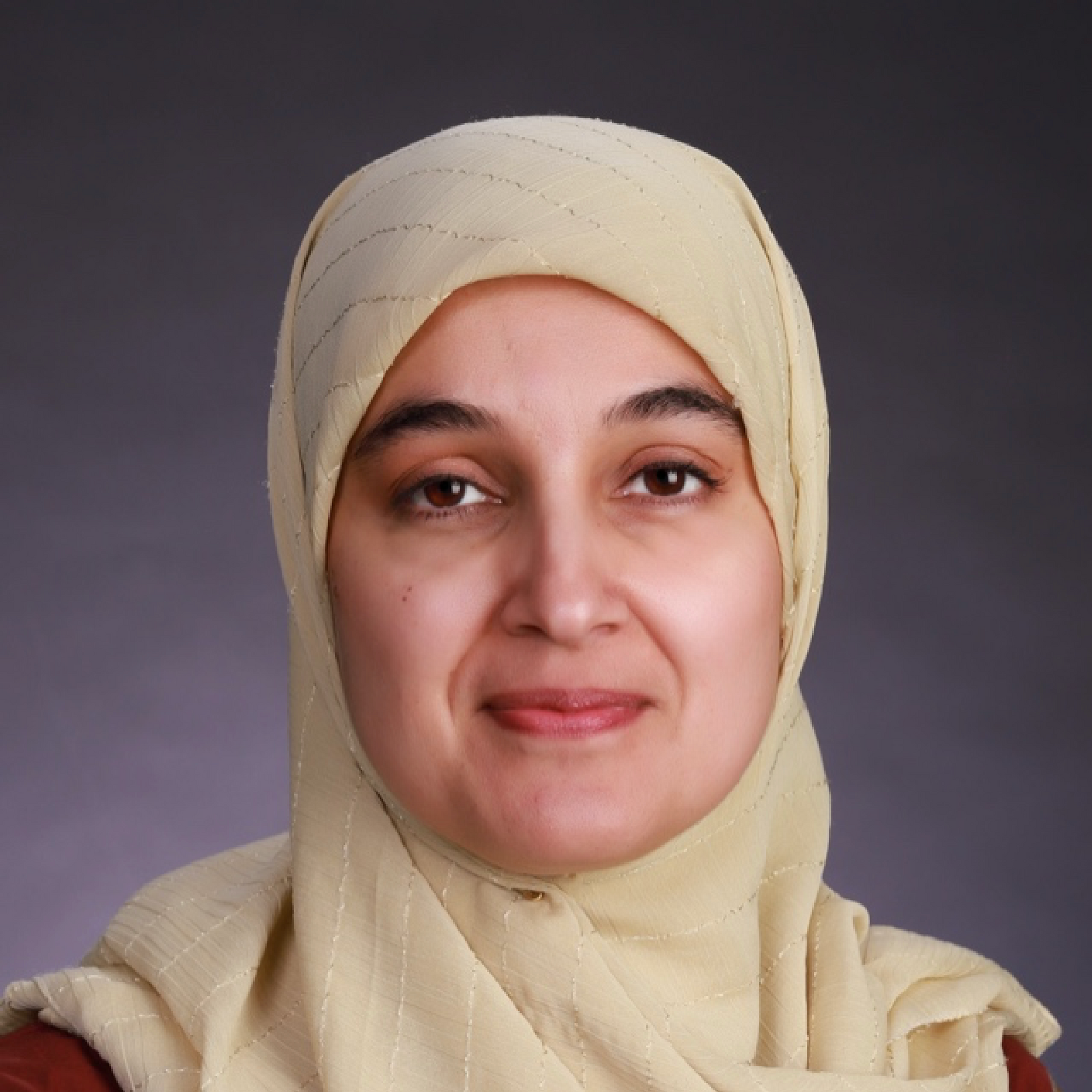
Maria Bajwa, PhD (Sim), MBBS, MSMS, CHSE
Artificial Intelligence (AI) Lead
View Bio
Dr. Maria Bajwa is a simulation expert, researcher, and a leader in the ethical integration of AI in healthcare training, as well as the founding CEO of https://chlstoday.org/ She co-developed the Distance Simulation Educator Guidelines and authored a widely used guide on AI prompt design for simulationists. She also developed a Partnership Principle for simulationists, AI developers, and the AI industry, promoting responsible, effective, and sustainable collaboration between simulation end-users and AI technology innovators. Her research focuses on bias-aware AI use, faculty preparedness, and the translation of emerging technologies into practical, real-world teaching strategies. Dr. Bajwa supports faculty and institutions in adopting AI tools with clarity, care, and confidence. She is an invaluable resource for clients looking to modernize and strengthen their educational programs with precision and foresight.
International Consultants
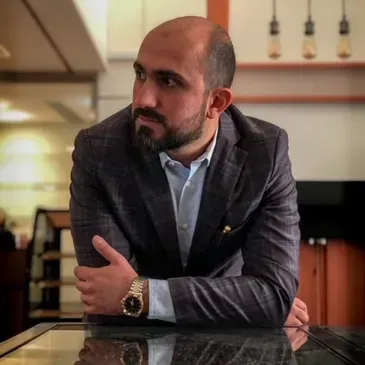
Sadek Obeidat, MD, MBA, MHPE
Middle East Lead
View Bio
Dr. Sadek Obeidat is a lecturer in the Department of Clinical Skills at Alfaisal University, Saudi Arabia. With a foundation in medicine and business, having earned his MBBS and MBA with a focus on Healthcare Management from Alfaisal University, he brings a comprehensive approach to healthcare education and management. Dr. Obeidat's professional journey is further distinguished by his ongoing pursuit of a Health Professions Education degree, in collaboration with the Massachusetts General Hospital Institute for Health Professions, expected to conclude in 2024.
In his capacity at Alfaisal University, Dr. Obeidat has significantly contributed to the development and management of the clinical skills curriculum, overseeing a team dedicated to enhancing student performance through innovative teaching methods. His leadership in the medical simulation center at the university has been pivotal in preparing students for practical patient care, thereby elevating the overall quality of healthcare education.
Beyond academia, Dr. Obeidat's expertise extends to healthcare consultancy, where he has offered strategic guidance to organizations such as Galen Global and the Saudi Healthcare Training Company. His work in this arena focuses on operational optimization, strategic planning, and the implementation of educational solutions aimed at improving the skill set of healthcare professionals across various disciplines. Notably, his consulting projects have included initiatives for the Saudi Ministry of Health, telehealth companies in the United States, and an Autism Boarding School in Jordan, among others. These projects underscore his ability to apply his knowledge and skills across various healthcare environments, driving improvements in healthcare delivery and education.
Dr. Obeidat's research interests are broad, encompassing the effectiveness of simulation in healthcare education, with a particular focus on leveraging large language models for scenario-based training. His contributions to the field have been shared at international forums, such as the International Meeting on Simulation in Healthcare (IMSH), where he has facilitated workshops on enhancing distance simulation training.
Engaged in the wider medical education community, Dr. Obeidat has actively participated in conferences and workshops, including the Saudi International Medical Education Conference, contributing to the discourse on best practices in clinical training. His role as an instructor in the Alfaisal Scholar Program in Research Excellence (ASPiRE) further underscores his commitment to fostering research and innovation in healthcare education.
Looking towards the future, Dr. Sadek Obeidat is keen on leveraging his extensive background in consulting and his advanced professional education in clinical simulation and health professions education to make a profound impact. He is committed to consulting and assisting educational and healthcare institutions in establishing, developing, or enhancing their clinical simulation centers. With his expertise, Dr. Obeidat aims to transform these centers into state-of-the-art facilities that not only meet but exceed current educational standards. By integrating innovative simulation technologies and methodologies, he seeks to elevate the quality of healthcare education, ensuring that future healthcare professionals are well-prepared to deliver exceptional patient care. Through these endeavors, Dr. Obeidat aspires to contribute significantly to the evolution of healthcare education and practice, both locally and globally.
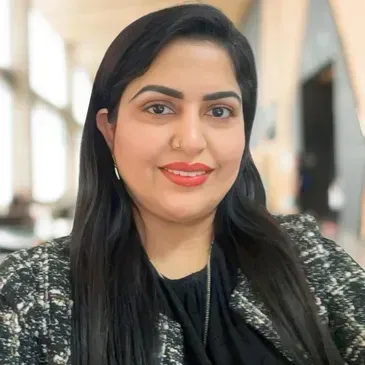
Jabeen Fayyaz, MD, FCPS, MCPS, DCH, CHSE, MHPE, Ph.D. (Sim)
Southeast Asia Lead
View Bio
Dr. Fayyaz joined SickKids in 2016 as a PEM Fellow and is
currently a Staff Physician and Assistant Professor, University of Toronto. Dr. Fayyaz graduated from Pakistan and worked as a Pediatric Emergency Medicine (PEM) faculty at Aga Khan University Hospital (AKUH) for 5
years. She was among the few leaders in Pakistan with the EM specialty recognized by the College of Physicians and Surgeons of Pakistan in 2011.
Later, she worked at
Sultan Qaboos University Hospital (SQUH) for 3 years and
led the implementation of the Canadian Triage and Acuity
Scale (CTAS), followed by a quality improvement initiative utilizing LEAN Sigma methodology. In 2016 she started her PEM fellowship at SickKids, followed by a one-year
Simulation fellowship. In 2018, she completed her master’s degree in health professional education from Aga Khan University Hospital, followed by Ph.D. in simulation from the MGH
IHP, an affiliate of Harvard, USA. She was appointed recently as Simkids Medical director.
Dr. Fayyaz is the PEM international fellowship program director and resuscitation lead. Dr.Fayyaz is also the International Paediatric Simulation Society (IPSS) - INSPIRE PED Simulation fellowship Chair and Board of INSPIRE and IPSS directors. Being passionate about utilizing distance simulation for community outreach and capacity building, in the last 3 years, she
worked with Indus Hospital and the health network; she has implemented a simulation-based
PEM curriculum for EM residents and a one-year PEM certification program with 27 physicians
graduating in July 2023. A Simulation instructor course for faculty development was
implemented, and more than 50 educators have been trained for simulation-based education in
Pakistan. Her international work continued in India, Egypt, and Ireland.
In addition, at SickKids, Dr. Fayyaz is the resuscitation lead for the competency-based medical education program (CBME) for Faculty, Faculty lead for the Hot wash debriefing program, Chair resuscitation oversight committee and ED lead for CPR coach role implementation. Dr. Fayyaz’s
interest is exploring simulation as system and process testing, quality improvement and patient safety, and providing an enriching cultural environment in teaching and learning. Dr. Fayyaz has been an active member of the Simulation Steering Committee since 2019.

